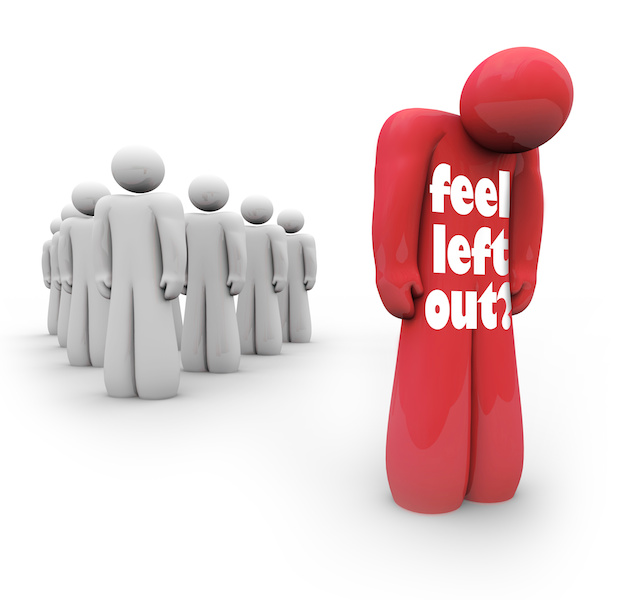Divorce lessons from Lewis the cat
 Lewis was a cat. No pedigree. No unusual markings. Just furry gray, huggable, and independent. In the last year, he managed to sneak out of the house twice. He nailed a few birds, even a ground squirrel – conquering his prey with only one tooth.
Lewis was a cat. No pedigree. No unusual markings. Just furry gray, huggable, and independent. In the last year, he managed to sneak out of the house twice. He nailed a few birds, even a ground squirrel – conquering his prey with only one tooth.
He lived with my daughter until this morning, when she made the brave, terrifying, agonizing decision to put him to sleep. Lewis’s diabetes had escalated. He was licking and scratching himself raw. He wasn’t eating. He was miserable. Medication didn’t seem to help. More tests meant dipping deep into savings.
Aside from “do not resuscitate” for human loved ones, I think there’s no pain worse than the knot in your stomach when you decide if your sick pet lives or dies by your hand. I watched my daughter struggle: Am I being selfish? The vet says he might get another year or two with expensive meds. Is this my fault because I moved him across country? Did I cause this when I left him with a cat sitter during business trips? Do I owe him more than this? Am I a mean, insensitive person? Then, the tears. He was her buddy. Did she have the right to kill him?
She’d adopted Lewis from the SPCA in New York City. He was 7 years old. He’d been caged for 8 months because no one wanted a “pre-diabetic” cat. Never mind that he was laid back, gentle (except if you are a bird or a mouse), and children didn’t phase him. He had a little indentation in his neck where we suspect a collar had been. We guessed someone abandoned him. He’d had full-on diabetes when the SPCA took him in. They reversed it and he reached pre-diabetic status.
My daughter fell in love with him, diabetes or not. Lewis lived with her for 3 years, including navigating a cross country move in the car. Never a peep. At the new house, life was good. Little kids tugged on his ears, and he ignored them. He had predator moments in the wild (her back yard). He ate expensive food to keep the diabetes at bay. Lewis was always hungry. He spent most of the day next to his bowl, just in case a passerby might drop a little goodie in it.
Then he got sicker. The vet listened and understood. The cat was not going to get better, she said. You’re doing everything right, but sometimes we must remember that no matter what we do, we will outlive our animals. We celebrate them at birth with our joy. We give them the best life we can. Then, we celebrate them at the end through our tears.
She decided to release his little soul.
A friend went with her. They talked about all the things that Lewis would do in kitty heaven. They cried together when the vet gently carried him away, the blue fluffy blanket wrapped around him. She kissed him on the head before she let him go. The vet promised her a little imprint of his paw in clay. She’ll frame it along with his picture.
There’s a hole in my daughter’s heart now. There’s guilt. There’s relief. There’s deep sadness.
Then, there’s moving on. It hurts like hell when she opens the back door after work and there’s no little furry gray head meowing for his dinner as if she’d never fed him. She tells herself she did the right thing. Of course she did.
Sometimes in life, there are no good choices. We make them, then we live with them. We keep going, and we grieve. They all hurt. They all draw criticism, even from ourselves. We do the best we can. And then we go forward.
One day, another kitten will appear at her doorstep. She’ll scoop him up and giggle with joy. He’ll never take Lewis’s place. But the circle of life with pets will begin again.
The depth of loss at endings enables the heights of joy at beginnings.
I offer this to you who are going through an ending – divorce or break-up. There are new beginnings ahead, in spite of the pain you feel now. It doesn’t diminish the good times. It simply means you keep going, and the cycle begins again with joy you think impossible right now.
Thank you for the laughter, the lessons, and love, Lewis. Rest in peace.

 Tragically, no one teaches us how. We are taught to offer solutions, instead. Why? Our society values action and results, logic rather than emotions. A logical solution masquerades as an escape from emotional pain. The well-meaning friend thinks: “If I offer reassurance and a plan, she’ll feel better.” Not necessarily true. Of course, no one wants to watch her friend cry. It’s uncomfortable and painful for everyone. We want to kiss it and make it better.
Tragically, no one teaches us how. We are taught to offer solutions, instead. Why? Our society values action and results, logic rather than emotions. A logical solution masquerades as an escape from emotional pain. The well-meaning friend thinks: “If I offer reassurance and a plan, she’ll feel better.” Not necessarily true. Of course, no one wants to watch her friend cry. It’s uncomfortable and painful for everyone. We want to kiss it and make it better. Here are 6 steps to help you unearth those core strengths, rescue your lost self, and answer the question, “Who Am I, Now?”
Here are 6 steps to help you unearth those core strengths, rescue your lost self, and answer the question, “Who Am I, Now?” They tell me about their forthcoming trip to Europe. I tell them how much fun they’re going to have. We finish the meal. I call Uber, go home, cry hard, and fall dead asleep.
They tell me about their forthcoming trip to Europe. I tell them how much fun they’re going to have. We finish the meal. I call Uber, go home, cry hard, and fall dead asleep.